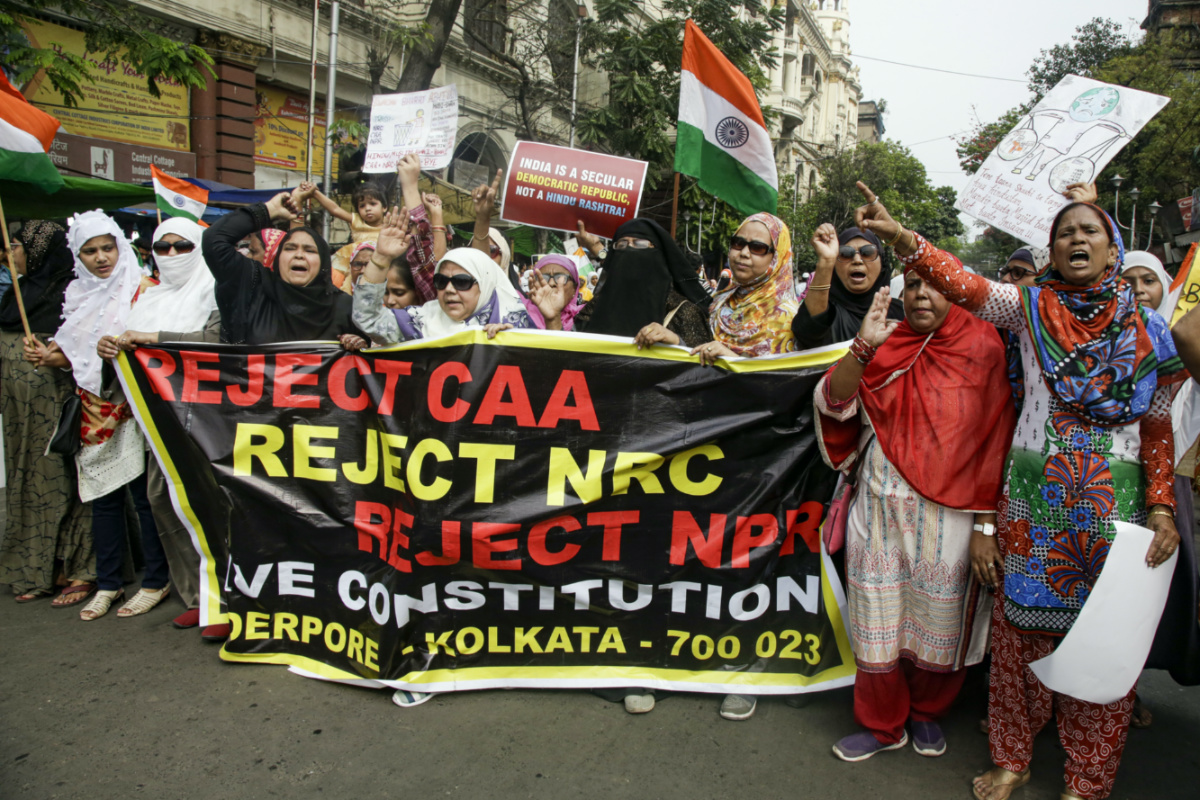A global analysis of government restrictions toward religion finds that the number of countries with “high” or “very high” levels of government restrictions rose slightly in 2019.
The analysis from the Pew Research Center, which included 198 countries, also found that social hostility toward religion declined in 2019, the last year for which data is available.

Indian Muslims shout slogans during a protest rally against a new citizenship law, in Kolkata, India, Thursday, 5th March 2020. The new citizenship law fast-tracks naturalisation for non-Muslim migrants from neighbouring Pakistan, Bangladesh and Afghanistan who are living in the country illegally. Opponents of the law say it violates India’s secular constitution, and further marginalises the 200 million Muslims in this Hindu-majority nation of 1.4 billion people. PICTURE: AP Photo/Bikas Das.
Most countries with “high” or “very high” levels of government restrictions in 2019 were either in the Asia-Pacific region (25 of the 50 countries in that region) or in the Middle East-North Africa region (19 of 20 countries).
Government restrictions in those countries with “high” or “very high” levels of official interference rose slightly – to 29 per cent of the 198 countries in the study, up from 28 per cent in 2018.
Religion-related terrorism dropped in 2019. Only 49 of the 198 countries experienced religion-related terrorism, down from 64 countries in 2018.
“Among the reasons for the decline in the study’s terrorism measures is that ISIS subsequently lost control of a large swath of territory in Iraq and Syria,” the report said.
But government harassment of religious groups – where a government official singles out a religious group with the intent of making religious practice more difficult – took place in nearly all countries. Widespread physical harassment was less common.
Fewer than half of the 198 countries analysed, (48 per cent), reported at least one incident of governments using force against religious groups. China, Myanmar, Sudan and Syria topped the list of countries using government force against religious groups.
Christians and Muslims, the world’s largest and most widely dispersed religious groups, experienced more harassment in more countries from governments and social groups in 2019, the study found. Harassment of Christians was reported in 153 countries, up from 145 countries in 2018. Muslims were harassed in 147 countries in 2019, up from 139 countries in 2018. Property damage was the most prevalent type of harassment.
None of the world’s 25 most populous countries experienced large changes in government restrictions or social hostility scores.
Egypt, India, Pakistan, Nigeria and Russia stood out for having the most government restrictions and social hostilities toward religion. Japan, the Democratic Republic of Congo, South Africa, Italy and the United States had the least restrictions and hostilities.
The Pew analysis relied on 19 widely available sources of information on government restrictions and social hostilities involving religion. Those included US Government agencies, several independent, nongovernmental organizations and a variety of European and United Nations bodies.
The analysis was produced as part of the Pew-Templeton Global Religious Futures project.






